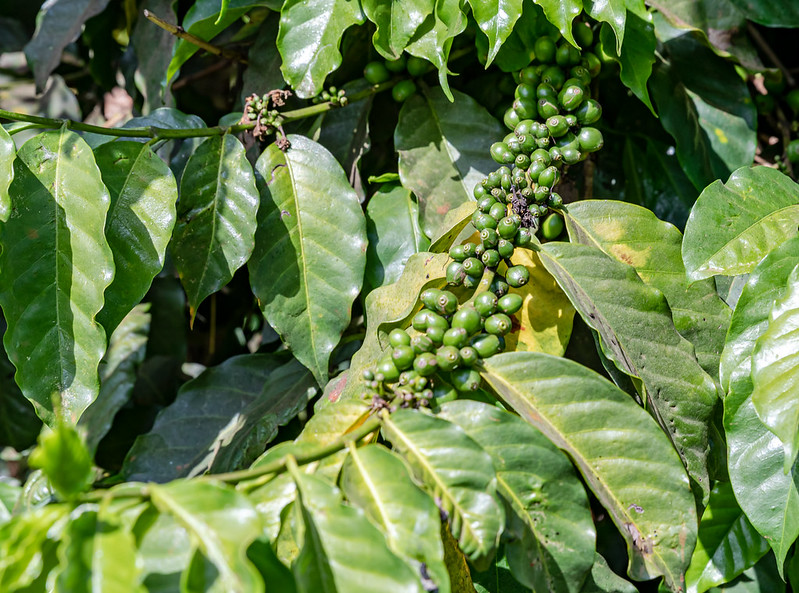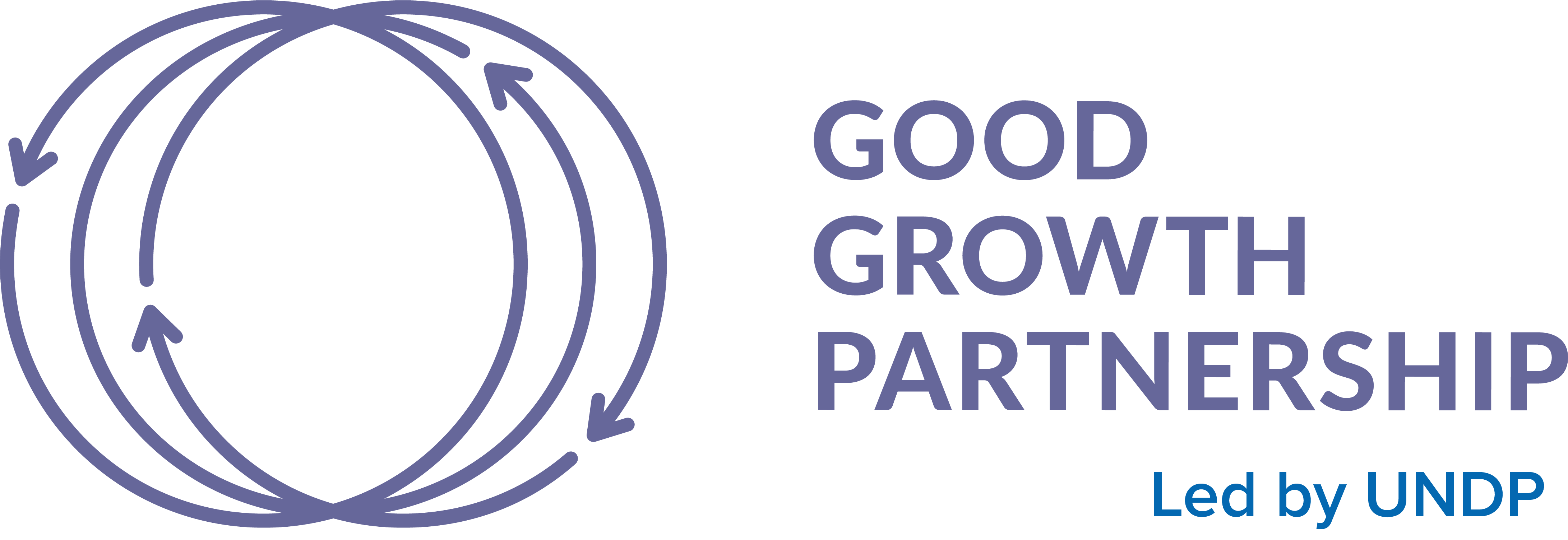
______________________________
By Clare Murphy-McGreevey
The Food Systems, Land Use and Restoration (FOLUR) Impact Program hosted its first Regional Dialogue, FOLUR Africa: Transforming value chains and agroforestry systems in Africa for a better food future on October 13-14, 2023, in Nairobi. The occasion served to assess progress toward transforming food systems – particularly coffee and cocoa value chains – by improving agricultural practices and land use management. The meeting brought together representatives from 10 African countries delivering projects as well as partners for relationship-building, knowledge exchange/training, showcasing lessons and accelerating impact.
Objectives included:
-
To “test drive” in interactive sessions the tools and offerings the Global Platform can provide to country projects e.g., how the Participatory Informed Landscape Approach (PILA) could help with integration challenges
-
To identify top 3-5 key sustainability challenges
-
To share 5-7 early lessons learned from country projects around early implementation (e.g., identifying common early bottlenecks like stakeholder management or data collection.)
-
To examine ways in which sustainable production of coffee and cocoa can assist with wider efforts of deforestation, and food and nutrition security
-
To inform future coordination by commodity and region, and between the Global Platform and Country Projects.
Audience
Almost 50 in-person participants from 10 African countries, working on coffee, cocoa, palm oil and rice, as well as Core Partners of the FOLUR Global Platform and the Global Environment Facility joined the two-day session. Representatives from Ethiopia connected online.
Summary
On the first day, a fast-paced, Dragon’s Den style presentation of 10 country projects revealed many shared challenges and potential solutions. Presentations on Global Platform tools – PILA, Value Beyond Value Chains and Policy Accelerators - were well-received by country participants who had several questions on how to apply these tools and adapt them to country contexts.
In the afternoon session, a presentation by Zoe Druilhe of the European Commission provided a useful overview of the European Sustainable Cocoa Initiative through the lens of the European Union deforestation regulation (EUDR), prompting discussions by participants on how to rise to the challenge of “deforestation-free” value chains, the necessity to include smallholder farmers in this transition and the expected benefits of these initiatives. The final session of the day included a short presentation on joining the dedicated FOLUR information and knowledge sharing space, the Food and Agricultural Commodities (FACS) Community. The session also mobilized participants to speak to people they had not met previously and engage in targeted conversations. Afterwards, delegates gathered in “commodity corners” where they held focused discussions on coffee, cocoa and cross-commodity conversations, with participants grouped by language.
On the second day, several leading private sector representatives, from such organizations as the International Finance Corporation (IFC), Global Coffee Platform and Nespresso, spoke in panel sessions on how to raise producer and small-holder farmer incomes, while boosting sustainability of coffee. Nespresso provided a hopeful message that there is now more alignment and complementarity on the path toward sustainable coffee production and consumption than ever before. Participants heard from an all-woman panel about the need to move beyond gender targeting and meeting pre-determined quotas of women beneficiaries toward establishing more secure land rights for women -- such as through land certificates signed by both spouses in a couple as is happening in Burundi and Ethiopia) and meaningful participation in decision-making bodies, particularly in leadership positions (seen in the Ghana, Tanzania and Liberia FOLUR projects) as key enablers of long-term empowerment. The session ended with the launch of a Resource Guide on Gender Equality for FOLUR, which is now available on the FACS community website for access by all country projects.
The conference was followed by a field trip to Fairview Coffee Estate, where participants heard about sustainable practices. The estate aims to mix tourism and developing real estate with coffee production to ensure long-term sustainability and to move closer to the goal of all processed coffee being sold on-farm. Ultimately, these activities will encourage a trend to cultivate and process coffee and potentially other commodities within Africa.
The Regional Dialogue helped participants from Africa connect and collaborate across countries, regions and languages and facilitated exchange around country project goals and challenges. African country project representatives showed a strong appetite to learn more about Global Platform tools, including PILA, Value Beyond Value Chains and Policy Accelerators, with an interactive “World Café” where countries interacted with the tools running over the time allocated for the session. The Global Platform will take forward key lessons learned including capacity needs assessments and feedback, training courses, dialogue and exchange, guidance notes and a clear menu of offerings for country projects and regionally organized offerings, particularly in relation to the key commodities of coffee and cocoa. The FOLUR coordination team will incorporate the insights shared by projects in future reports and in upcoming FOLUR activities.
Key Takeaways
-
Property rights, i.e., land and tree tenure, particularly for women, was a key theme that emerged throughout FOLUR Africa discussions. Participants agreed that legal land tenure, particularly for smallholders and women, was essential to achieving FOLUR Impact Program goals. Land and tree tenure was strongly associated with farmers’ ability to act as custodians of land and protectors of forests, but also to promote more sustainable, long-term practices that avoid land degradation.
-
Some participants reflected that the future of key commodities is at risk – for example, demand for coffee could outpace supply, as Conservation International said that meeting future demand for coffee would require tripling production by 2050, with significant impacts on forests as most coffee production is currently grown in forested areas.
-
Participants reflected that the adverse effects of climate change were a significant challenge to sustainability and productivity. The Global Coffee Platform highlighted that Kenyan coffee production had declined significantly due to climate change (62% in the past 30 years) and such challenges as inefficient cooperatives.
-
The cross-border nature of landscapes was flagged as an important consideration, as the production of one commodity can span two countries and two implementing agencies under FOLUR. This scenario points to the need for an integrated and whole of landscape approach where both wildlife and domesticated animals are factored into the coffee production landscape, with the former requiring forests for survival and the latter important to farmers’ livelihoods.
-
Political economy was seen as a barrier to policy change, while participants recognized that national politics are often very dynamic. Participants highlighted a lack of payments to farmers for ecosystem services and a reliance on direct subsidies as shortcomings. Some policies cited discouraged cross-border trade and perpetuated countries’ reliance on exports, particularly for such staple foods as rice. There was a recognition that policies must change as a first step towards meeting the goals of the FOLUR Impact Program.
-
The importance of women smallholder farmers in driving more sustainable practices was recognized among FOLUR Africa participants. While many projects had impressive targets set for reaching women beneficiaries, there was also a recognition of the need to move beyond gender targeting in projects and towards more systemic shifts, such as enabling women to own land with legal deeds and certificates. Creating conducive spaces and establishing convenient times for women to participate in workshops and dialogues was considered a vital ingredient for change.
-
Bottom-up, participatory approaches were highlighted as essential steps in multi-stakeholder dialogue, with FOLUR Africa participants suggesting that mapping should be done by local communities to tap into local knowledge and identify resources in a landscape. Participants also expressed the need to include Indigenous Peoples and local communities in mapping exercises for equity and human rights’ reasons.
-
There was a forward-looking ambition to reduce dependence on imported staple crops and “learn to eat what we grow” with production and processing taking place on farm, which would also reduce food loss and waste when crops tended to spoil during transport or at the border. Participants envisioned thriving coffee, cocoa, palm oil and rice sectors by 2050 producing high-quality commodities suitable for export and rewarding smallholder farmers with a living income.







